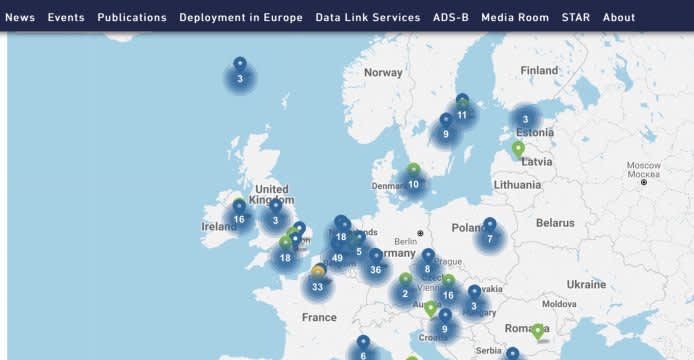

EU Air Traffic passengers benefit as completed SESAR deployment projects reach the 100th milestone
SESAR deployment projects are delivering performance benefits for EU air traffic passengers
Air traffic passengers across Europe are benefitting after the number of completed modernisation aviation projects being deployed by SESAR Deployment Manager (SDM) and supported by all operational stakeholders, reached the 100th milestone.
The total number of fully completed air traffic modernization projects now stands at 105 – the first 100 representing an investment of EUR403 million – with a further 225 ongoing and 19 more planned, bringing new operational efficiencies as well as environmental and capacity benefits to Europe’s aviation industry.
Nicolas Warinsko, General Manager SESAR Deployment Manager, said: “These expected results indicate that the deployment of SESAR delivers actual contributions to the performance of aviation in Europe.
“The modernization projects not only provide operational solutions to meet the growing capacity demand, but also make air travel in Europe more cost effective, greener and safer for all EU passengers and citizens.
“And this is just the result of the first 100 completed projects, the aviation industry is – with another 225 projects ongoing and 19 planned – clearly boosting ATM modernization.”
Find a breakdown below on the expected benefits as a result of the SESAR deployment modernization projects:
OPERATIONAL EFFICIENCY
738,000 flight minutes expected to be saved in 2019 representing a cost saving of 29 million euro
By 2030 the number of saved flight minutes will climb to 12 million representing a cost saving of 484 million euro
ENVIRONMENT
12,200 tons of fuel expected to be saved in 2019 representing 38 300 tons of CO2 saved and a cost saving of 10 million euro
By 2030 this will climb to 166 000 tons of saved fuel and represents 522,000 tons of CO2 saved and 134 million euro
CAPACITY
363,000 delay minutes expected to be saved in 2019 representing 10 million euro
By 2030 this will climb to 6.2 million delay minutes saved and 178 million euro